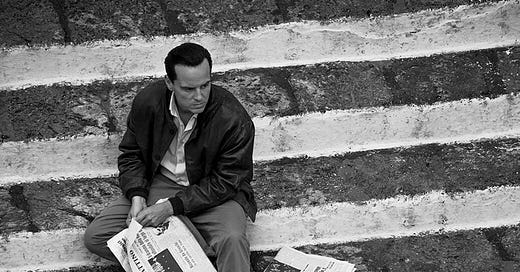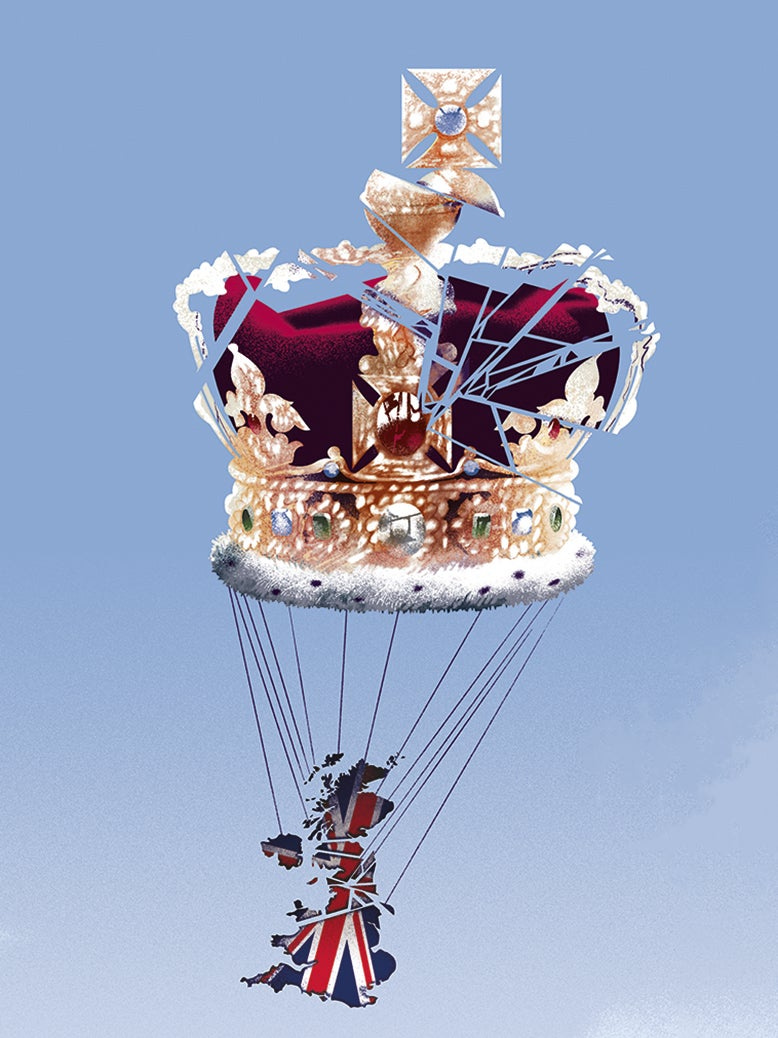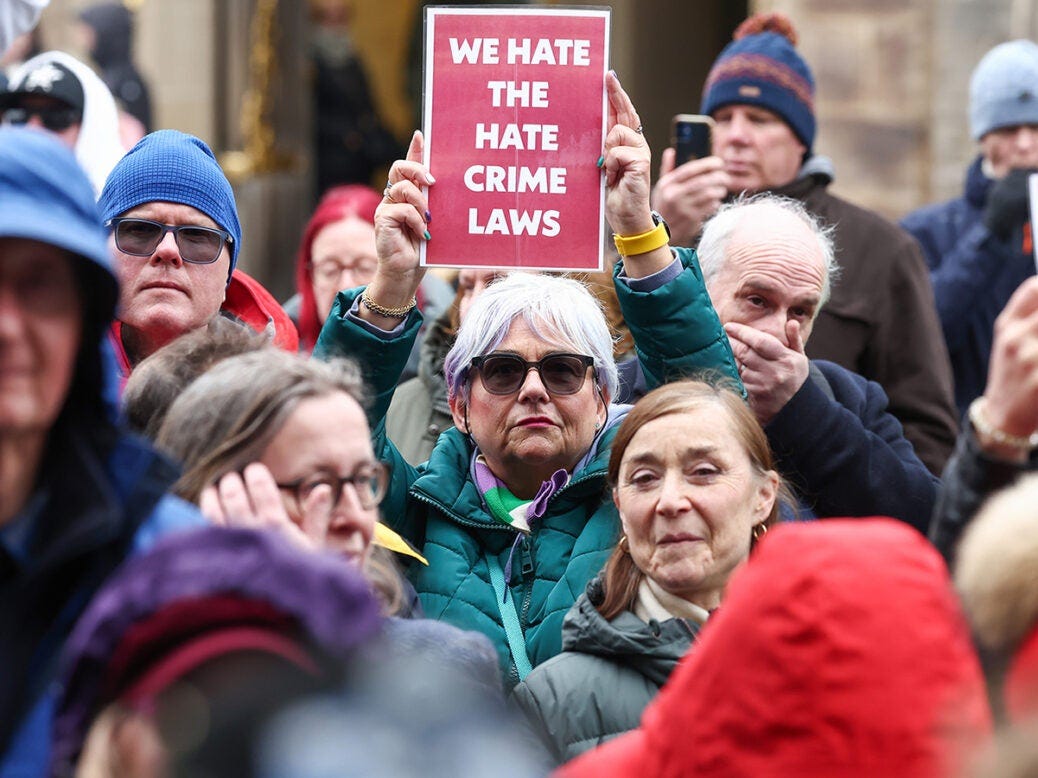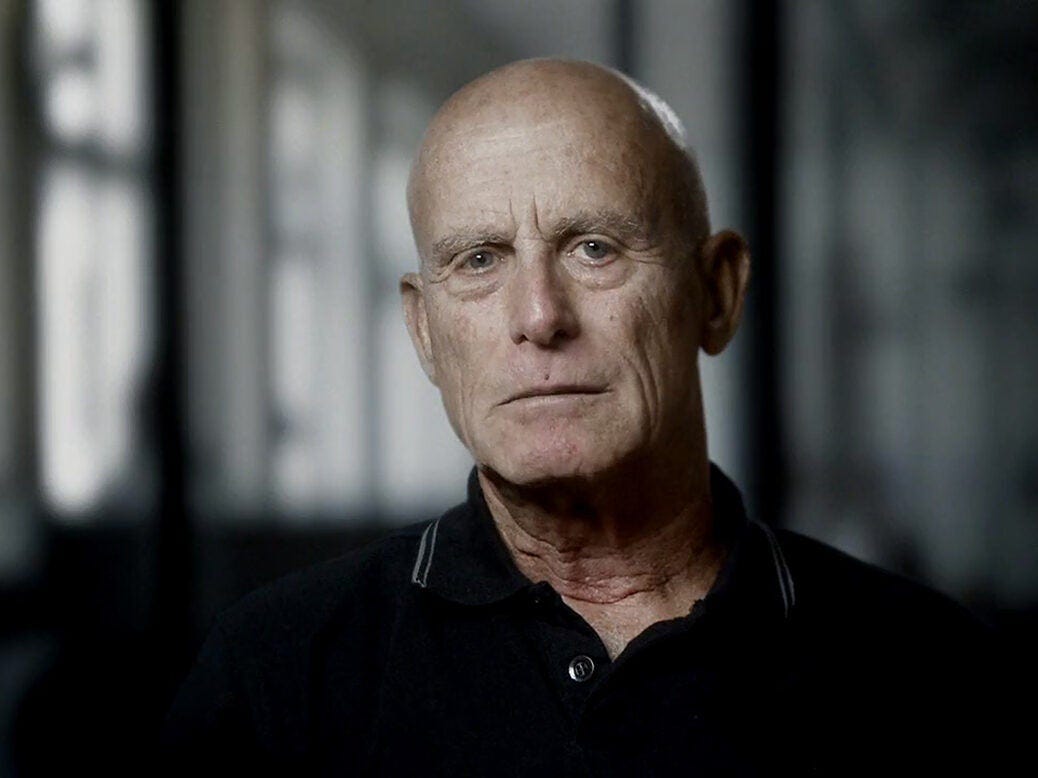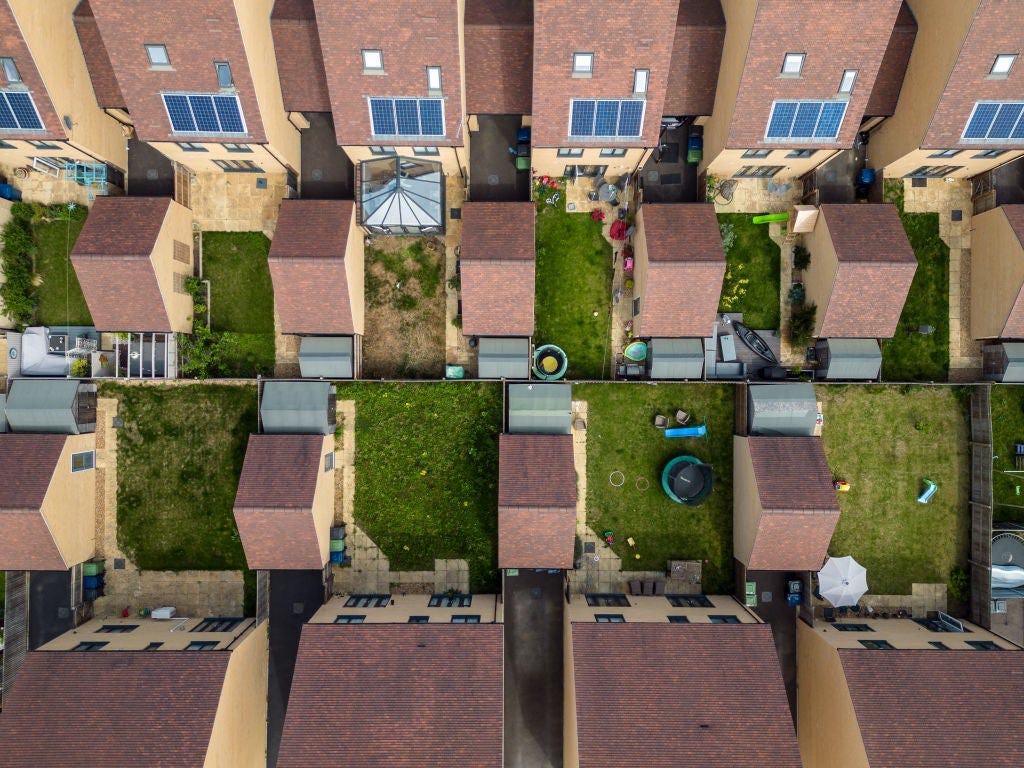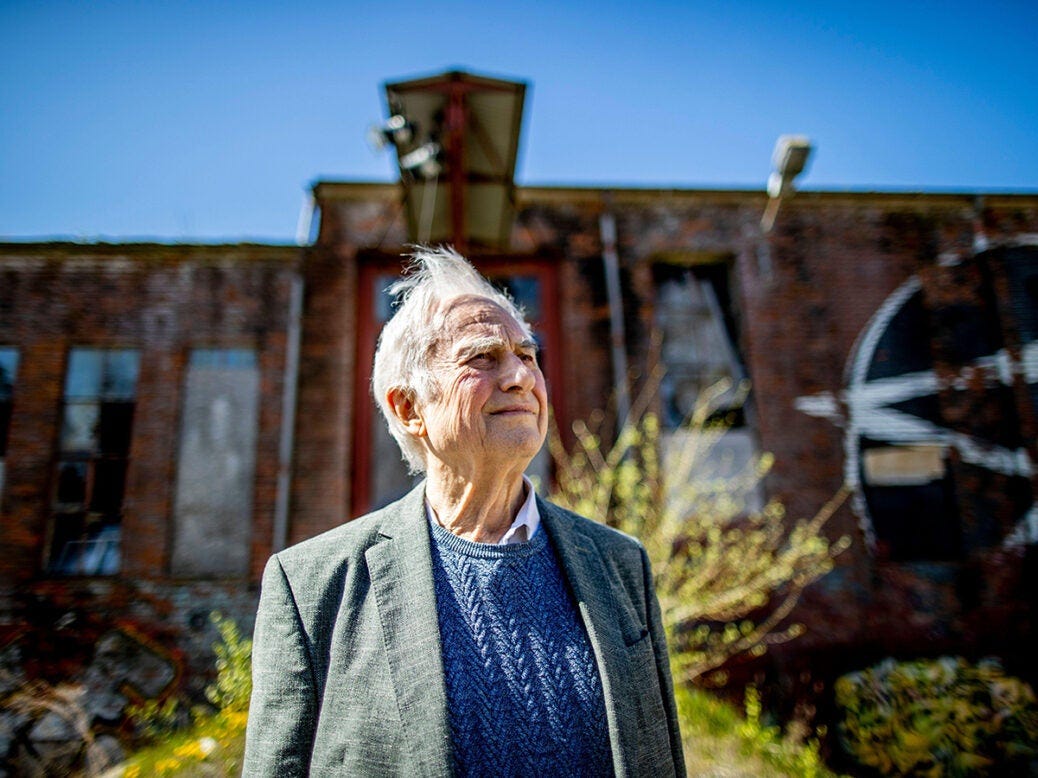Good morning. Welcome to the Saturday Read, the New Statesman’s weekly guide to politics, culture, books, and ideas. This is Harry, along with Jason, Pippa and George.
We have a good set of writers for you today: Maurice Glasman, Tanya Gold, Finn McRedmond, Bruno Maçães, Ryan Ruby, Lee Siegel, Anthony Loyd, Anoosh Chakelian, Morgan Jones and Madoc Cairns. We are also joined today, and going forward in the Saturday Read, by our editor-in-chief, Jason Cowley. He starts us off.
The strange inequality of our student loan system has been occupying my mind this week. It’s part of a much bigger problem with our universities, a subject to which we will be returning in depth in the pages of the NS soon. Join us for that and much else:
The NS is hiring a new position: we are seeking an experienced writer-editor to join our team. Please pass this on to anyone you think may be interested, or click to apply.
I’m delighted to be joining the Saturday Read team this week and my first pick is by Maurice Glasman as he continues his travels through what the historian Timothy Snyder calls Europe’s bloodlands.
In the summer of 2022, in one of “the dead, mythic Jewish cities where my ancestors were born” – Lublin, Zamość, Chelm – Maurice met an old woman, Helena, originally from the Donbas region who recalled being “bombed out” of her home village by the Nazis. Now she is exiled again because of Russian aggression. “They want me to go to Munich to be safe,” she said. “It is the end of the world.”
Glasman’s report is haunted by an impending sense of an ending as he tries to make sense of a war that is not being won by Ukraine. The mood in the country is bleak. And he is alarmed by the authoritarian turn of Volodymyr Zelensky, a hero to Western liberals not so long ago.
Maurice ends his piece by visiting the Jewish Community Centre in Kyiv, half synagogue, half soup kitchen, as he describes it. There he meets some of the “remaining Jews” who have not left for Germany, Austria or Israel. “They hate Zelensky because he is a nationalist. They hate Putin because he is a tsarist… And they long for the Soviet Union to be restored.” Here in the shadowlands of war-ravaged Ukraine, Maurice Glasman feels only a deep sense of grief as he is borne back ceaselessly into the past.
1—“Who will protect them from us?”
Monarchs are supposed to be mortal gods, but Britain’s royals are insistent on being human. Tanya Gold writes on this impossible position for this week’s cover story. PB
I’ve long thought that monarchy allows us to imagine our kingdom – our national story – as more interesting and singular than it is. Monarchy is attractive but necrotic: it looks backwards by nature. If there was an opportunity for dynamic monarchy – the Norman lawmakers, perhaps, or the Tudor propagandists – we haven’t taken it. The instruments of monarchy are imperial, and in daylight they look increasingly odd and piteous. It’s a truism of addiction – and many are addicted to monarchy – that the larger your fantasy life, the smaller your real one. Bunting is everywhere, as our national decline becomes explicit, from “The Great British Bake Off” to the coronation. Bunting is a thread, but a flimsy one.
2—“A mode of censoriousness is written deep into the contours of Scottish history.”
JK Rowling was right to protest Scotland’s new Hate Crime Act, writes Finn McRedmond. It reveals the supposedly progressive SNP as puritanical. PB
The disquiet at the new measures has been predictable: the Scottish broadcaster Andrew Neil proclaims the law an “Orwellian nightmare”; the Economist suggests it will have a “chilling effect on free speech”. There is general concern that the act will be vulnerable to malicious weaponisation by activist groups, and that it might overwhelm an already beleaguered and underperforming police force. The appointment of 500 so-called hate crime champions and the establishment of “third-party reporting centres” have a distinctly dystopian hum.
3—“We have to assume we shall have a war with Hezbollah not because we want it or they want it but because we are losing control.”
Bruno Maçães has interviewed the former head of the Israeli secret service. He maintains hope in a two state solution, but sees further conflict ahead. GM
If we enter into Rafah it will be a human disaster. I don’t know how many Palestinians will die. I know that many Israelis will die. We have to assume rationally that Egypt will have to react. Hundreds of thousands of Palestinians will climb on the [border] fences. And Egypt will have to reassess the peace process with Israel. [The Egyptian president Abdel Fattah] el-Sisi will have to say he cannot [maintain the peace treaty] until the war stops.
4—“He’s no longer the talented Mr Ripley; just Ripley.”
As well as being “eminently filmable”, Patricia Highsmith’s The Talented Mr Ripley is a compelling measure of American self-image. Adaptations came out in 1960, in 1999, and last Thursday on Netflix. Ryan Ruby considers the its cultural significance of this latest offering, starring Andrew Scott. GM
As with most nostalgic artefacts, Ripley is also sterile. Whereas Minghella dials up the homoeroticism in Highsmith’s novel to great effect – especially in the bathtub chess scene or when Tom is caught trying on Dickie’s clothes – Steven Zaillian [the show’s creator] throws a wet blanket on it. His main actors are so lacking in physical and emotional chemistry that it is impossible to imagine any points of this love triangle running the risk of tripping into bed with each other, or anyone else for that matter.
And, not or – that’s our approach. While today we’re mostly in oil and gas, we increased the proportion of our global annual investment that went into our lower carbon & other transition businesses from around 3% in 2019 to around 23% in 2023. bp.com/AndNotOr
5—“Amid this increasingly lethal and inane American cacophony, the country has become virtually speechless.”
Will there be blood? Contra Sohrab Ahmari’s piece last week, Lee Siegel argues that Trump’s “bloodbath” rhetoric is indeed a grave danger to democracy in the US. That this is even in question is a reflection of Trump’s ruination of language. GM
To be fair, there is a calamitous ingenuity about [Trump’s rhetorical] tactic. The despised elites have prestigious family connections, fancy university degrees, talent and brains in some cases, and impressive cultural accomplishments. But everyone, in the humblest situations, has blood coursing through their veins. To make the blood of your adored and adoring supporters not just biologically, but culturally and socially superior is to elevate the common person above the oppressive elites. It’s not just the toxic quality of the language that is so much of a threat. It is its promise of chthonic gratification.
6—“Not a single official called the Foleys.”
The thing that really caught me in this piece – about the 2014 Islamic State beheading of the journalist James Foley, and the book his mother has written about its aftermath – is the portrait it paints of Barack Obama as president: cold, aloof, wrong-headed. HL
In the months that followed Jim’s disappearance in 2012, the Foley family’s desperation had been exacerbated by the void of information surrounding his fate. They did not even know the identity of his captors. Help from US officials was scarce. The first FBI agent assigned to the case spoke no Arabic, and had neither knowledge of Syria, nor Turkey, nor any of the Islamic groups involved in the Syrian civil war.
Diane Foley describes, in a catalogue of suffering, how insult followed injustice when James’s captors finally made contact with her family directly, demanding money in return for the hostage’s liberty. Yet when the Foleys reached out for help from the authorities, US officials declined to negotiate with Isis, and threatened the family with prosecution if they attempted to raise a ransom for James’s life. In the meantime, every single European hostage held by the same Isis gang in Syria was released after their countries paid ransoms.
7—“Our relations with the US will require a good deal of work.”
The shadow defence minister, John Healey, speaks to Anoosh Chakelian about Labour’s national security plans, and if Britain should suspend arms sales to Israel. PB
The armed forces are so diminished that General Patrick Sanders, head of the British Army, has even mentioned the return of conscription. Would Labour consider creating a citizens’ army or reintroducing national service? “No, that’s a non-starter, and it distracts from the problems in the system we already have.” Yet Healey is concerned about the home front. “Ukraine has resisted Russia because of the strength of its civilian and military resistance… A country is only as strong as the resilience of its people and the strength of its industry, and that is just a blunt lesson from Ukraine we have to learn.”
8—“As to who would get custody of the acronym in a divorce – that’s all to play for.”
Is Britain’s Yimby – “Yes in my backyard” – movement gathering momentum? Morgan Jones thinks not. A fractious future awaits. They disagree on regulation, the market, the role of developers, and even what houses are for. GM
Whether you think they’re pragmatic or harmful, Yimbys have reached a level of political salience that seems likely to keep them in the housing debate for some time yet – earlier this year, PricedOut announced two more parliamentary champions, Labour’s Siobhain McDonagh and the Conservative, Brandon Lewis. Perhaps ideological divides in the Yimby movement are only to be expected when a cross-section of politically active under-40s is crammed into one acronym.
George’s Best of the Rest
Guardian: Nine dead in Taiwan’s strongest earthquake for 25 years.
Reuters: Ugandan court upholds anti-gay law.
Sky: Suspects in Iranian journalist attack have left UK, police say.
Sam Adler-Bell: Letting it go, psychoanalytically.
William Boyce: What is space for?
David Gornoski: Diamond Dallas Page tells America to breathe
Dwight Garner: John Barth, who pushed the limits of storytelling, dies at 93.
Adrienne Westenfeld: Holly Gramazio’s husband generator.
I once dissed Journey. I was wrong. The author stopped believing.
Trespassing bird causes chaos at Brighton station. Gulls just wanna have fun.
“Hardest geezer” to complete world-first Africa run on Sunday.
The River Lea’s comeback. Did it ever go away?
Barbarism and religion
Richard Dawkins and the New Atheists struggle not for truth but for survival, writes Madoc Cairns, in another stylish piece, of the kind that you don’t – or I didn’t – grasp in its entirety on first reading. But this is fine writing; let the words wash over you. HL
We speak, once again, of disorder in the cities of the empire, and war on her frontiers; new gods in the public places; barbarians on the roads. The historian Reinhart Koselleck one said all history since 1770 has been an account of crisis, and the form of that crisis, more often than not, has been the fall of Rome. “I have witnessed,” the sceptic Edward Gibbon wrote, at the conclusion of “The History of the Decline and Fall of the Roman Empire”, “the triumph of religion and barbarism”: his lament for the end of classical civilisation instigated modern secularism, and burdened it with the terror of collapse.
The “New Atheists” of the early-21st century were, in this regard, not new at all. Sam Harris, Christopher Hitchens, Ayaan Hirsi Ali – above all, Richard Dawkins – evangelised for an atheism they saw as simultaneously irrefutable and in danger of imminent eclipse. Their struggle was not just for truth, but for survival. From the pages of Gibbon, an “age of darkness and confusion” beckoned. Science was a flame flickering in the shadows of history; they fought against the dying of the light. That these fighters should turn renegade – Hirsi’s apostasy from unbelief, Dawkins’s refashioning as a cultural Christian – seems, on the face of it, inexplicable.
One way to make sense of the contortions of modern sceptics is to look again at one of their forefathers. Gibbon’s antagonism towards “enthusiasm”, “fanaticism” and “superstition”, so evident in “Decline and Fall”, was derived from the moral theory of the Scottish sceptic David Hume…
If today’s pieces intrigued, you can subscribe to the New Statesman below. Stay up to date with everything from news and analysis to comment, criticism and essays.
Whether you’re looking for a sharp blog or a finely written feature, the New Statesman has you covered. Have a good week, and catch you next Saturday.


